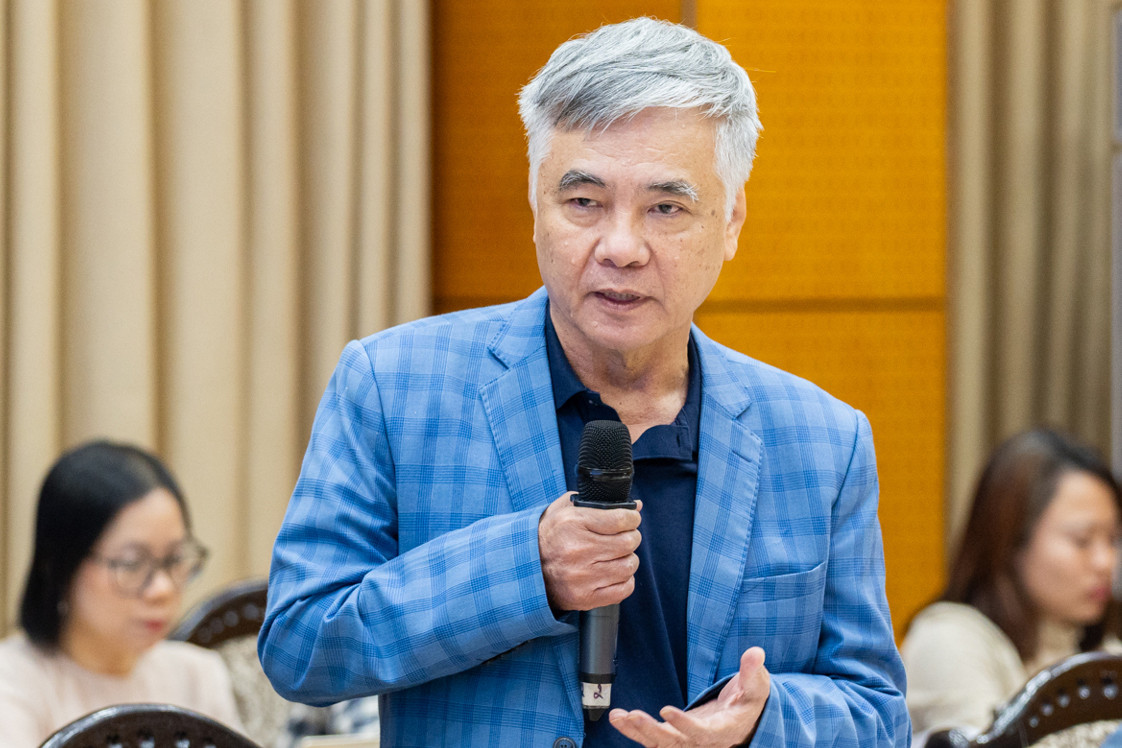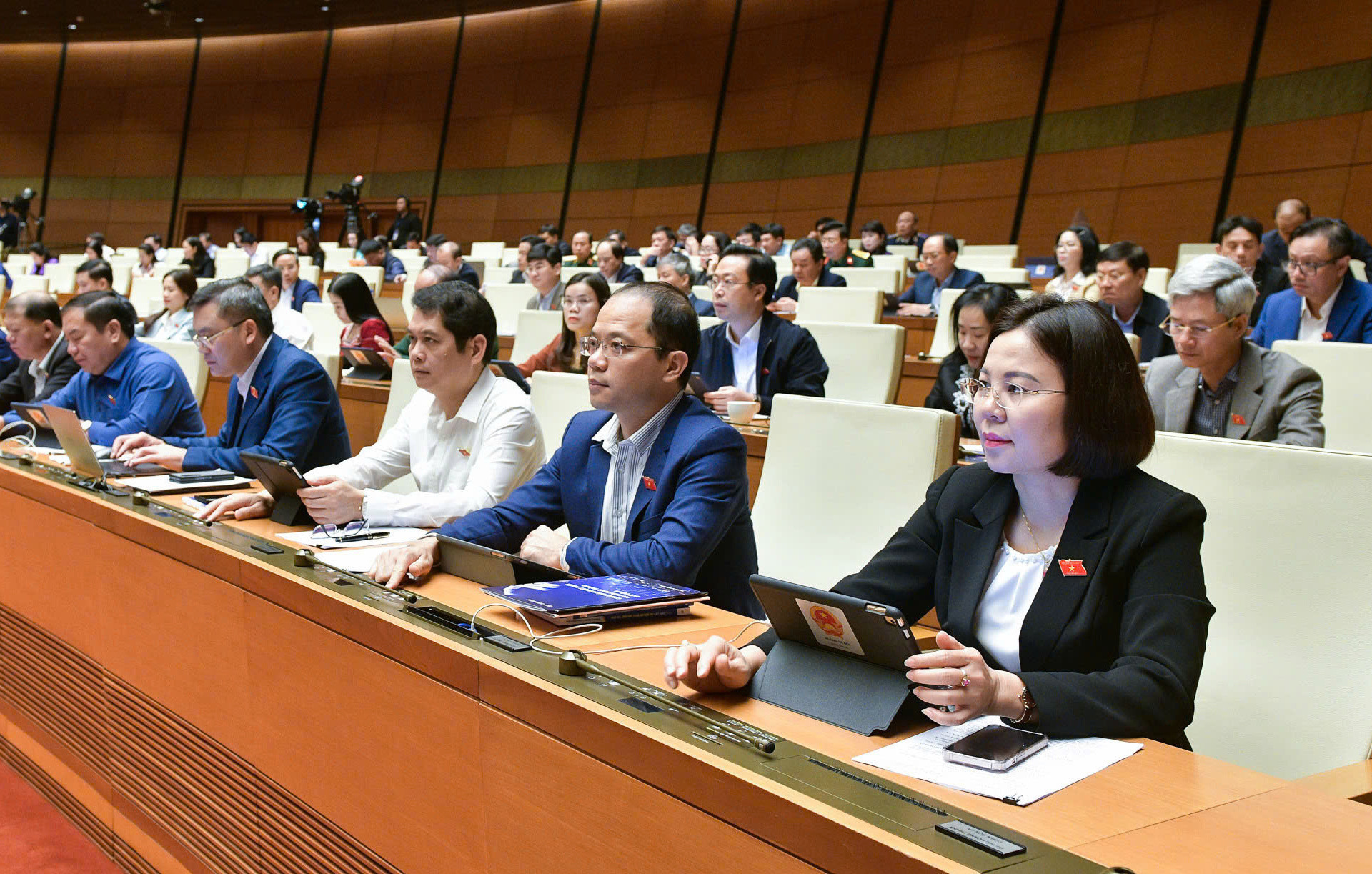General Secretary To Lam and the Party Central Committee have resolutely pursued a revolution to streamline the political apparatus. VietNamNet presents a series of expert discussions suggesting solutions for this revolution.
Part 1: Vietnam’s political streamlining: Attracting talent to lead the way
Part 2: Vietnam must transition to three-tier governance, experts advise
Part 3: Reducing National Assembly deputies: A step toward efficiency and quality
VietNamNet continues with Part 2 of the discussion with Nguyen Van Phuc, Member of the Vietnam Fatherland Front Central Committee, Former Deputy Chair of the National Assembly's Economic Committee, and Deputy Editor of the Constitutional Amendment Editorial Board.
In the previous discussion, you mentioned increasing the proportion of non-Party delegates and self-nominated candidates in the National Assembly. Why is this approach necessary?
Nguyen Van Phuc: Ensuring a proportion of non-Party delegates in the National Assembly reduces subjectivity and enhances objectivity, democracy, and persuasiveness in its activities.
In practice, some agencies and Party members rely heavily on Party leadership, presenting draft laws or resolutions to the National Assembly without thorough preparation, resulting in less convincing proposals. This contradicts the directives of the Central Committee and the Politburo, which emphasize the need for meticulous preparation by relevant agencies before seeking approval from the National Assembly.
For example, in 2010, the Politburo endorsed the Hanoi-Ho Chi Minh City high-speed rail project and instructed authorities to prepare thoroughly. However, when presented to the National Assembly, the project was rejected by most delegates - not the Politburo's directive but the inadequate preparation by responsible agencies.
The number of self-nominated delegates is currently minimal (only four). However, this number is expected to grow, as the National Assembly supports this initiative. I highly value the contributions of self-nominated delegates, such as Prof. Dr. Nguyen Anh Tri, Prof. Dr. Hoang Van Cuong (Hanoi delegation), and Lawyer Truong Trong Nghia (Ho Chi Minh City delegation), who have excelled in their roles.
Experts, scientists, and experienced managers who have retired from public service but remain capable and knowledgeable should be encouraged to self-nominate for election.
Having non-Party delegates in the National Assembly ensures that agencies and Party members avoid over-reliance on Party directives, compelling them to provide well-reasoned and persuasive justifications for consensus. This addresses a longstanding issue warned against by Lenin and President Ho Chi Minh.

I propose increasing the proportion of non-Party candidates for the National Assembly in a reasonable manner, leaving the election outcome to the voters. For example, to achieve 10% non-Party delegates, approximately 15% of candidates should be structured as non-Party individuals.
Additionally, the Council for Ethnic Affairs and each committee of the National Assembly should include a certain number of non-Party delegates. Currently, most members of these bodies are Party members.
How should the National Assembly's organizational structure evolve to streamline its apparatus?
Nguyen Van Phuc: The most critical task is to determine the total number, structure, and composition of National Assembly delegates to ensure high quality. A few points to consider:
The current structure and composition are not entirely optimal, and the quality of delegates does not always align with the Assembly's position and functions.
In some terms, there have been delegates who never spoke during plenary sessions, lacked debate skills, or faced challenges responding to discussions effectively.
Additionally, distinguishing between "central delegates" and "local delegates" undermines the Assembly's role as the highest representative body of the people and state authority. Delegates should represent the entire nation, not just the constituencies that elected them.
Instead of separate nominations by central and local organizations, all candidates should be proposed by the Central Fatherland Front and distributed to electoral units nationwide for voter selection. This approach would ensure a more balanced and high-quality composition of delegates.

What specific recommendations do you have for streamlining the National Assembly's apparatus?
Nguyen Van Phuc: While the Council for Ethnic Affairs and committees form the backbone of the National Assembly, most of their members are part-time delegates. These entities should not be structured like state administrative bodies but should retain their distinct roles in oversight, legislative review, and recommendations across various sectors.
The apparatus of the Council for Ethnic Affairs and committees should be rationally streamlined while ensuring their capacity for comprehensive and specialized functions. These entities must align with the roles of government ministries and judicial agencies to effectively fulfill their constitutional and legislative mandates.
However, the bulk of the National Assembly's organizational expansion in recent terms has occurred within the advisory and support apparatus, particularly the Office of the National Assembly and the Secretariat for the Secretary-General.
Tu Giang - Lan Anh